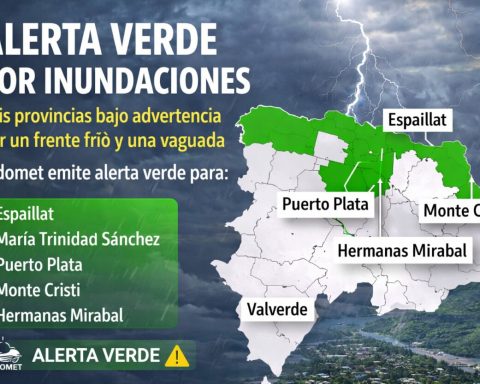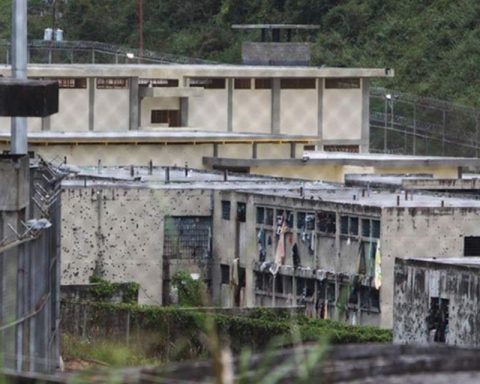Since last year, the infrastructure and transportation sectors have been in total uncertainty about toll prices during the year, which, although they have an annual increase structure, were interrupted due to the implementation of Decree 050 of 2023, which stopped the rise in rates.
After a year later and vague commitments by the Ministry of Transport, Yet this situation represents major challenges and indications for the industry.
You may be interested in: Traveling Cartagena-Medellin will be 6 hours faster with the new 4G North Connection
In November, the Government prepared a draft decree that included not only the increase that was made in January with respect to the CPI for 2022 (13.12%) for the year 2023, but also the commitment to increase the CPI in 2023 (9.28%) for the first of July, But after the date arrived, the readjustment has not yet materialized.
In addition, the head of the Ministry of Transport also changed in July, with María Constanza García, the new minister of this portfolio, saying in an interview with El Tiempo that the plan for raising tolls is still being formulated. “so as not to impact people.”
“We hope to define in this second semester what the plan will be to reestablish the rates. However, we have to be careful. For example, this week we saw what an increase of up to 100% meant from one day to the next in the Supía toll on the Manizales-Medellín highway, where there were protests and blockades and finally the ANI suspended it.”he explained.
And while there was a gradual plan to raise rates, the key questions have yet to be answered: how will they be raised, when will they be raised, and how much will be the adjustment?
Regarding the latter, he assured that they do not rule out that “It should not be for everyone, that the increase should be by zones or that it should be a percentage now and another later. There has always been talk of gradualness. We are studying it. The increases should be careful and strategic”but did not detail the Government’s plan in this matter.
Portafolio consulted again the Ministry, the entity preferred not to issue an official statement.
Can read: Amid fiscal constraints, ANI projects are waiting to be put out to tender
Tolls
TIME
In a sea of uncertainty…
With more questions than answers and in the midst of this secrecy, experts in the sector comment on the great impact that this type of inconclusive decisions leave on the investment climate, because without clear plans and changing the schedule of commitments, It is ‘very difficult’ for them to have financial closures and interested investors in injecting capital into the new wave of 5G projects that the Government is planning.
“This is very negative news for investors, the security of invested capital, rating agencies and the market in general, since the tariff update impacts the financial closings of the concessions. These values reach the income that crosses with the expenses to generate profitability and if the expenses are automatically updated with the year-end closings, the income is delayed in the update, which generates an imbalance in the finances of the concessionaires,” said Oscar Manco Lopez, PhD in economics and CEO of Trust Investment SAS.
This argument is supported by Nidia Hernández, president of the Colfecar transport union, who added that this will impact the efficiency of works and roads.
“The concession contracts and the State have established annual increases in toll rates based on the CPI, but if these are not implemented, it obviously affects investor confidence. As a freight transport sector, we are concerned, because if investor confidence in the infrastructure sector is lost, it is very possible that new construction projects will not be carried out and we will continue with less efficient roads, with lower quality and services for road users, as well as with fewer conditions that guarantee road safety. Today, we notice that the concessions are facing a lack of legal security, due to non-compliance with what is established in the contracts,” added
You may also like: ANI prepares its concessioned airports to meet passenger growth

Tolls
Guillermo Naranjo
The other side of the coin…
This uncertainty, in the case of transporters, also generates variations and alters the long-term planning mechanisms of companies. According to the president of Colfecar, this in the long run not only impacts this factor and the finances of companies, but also adds to the concern about the possible increase in diesel fuel, which has been under discussion in 2024, and about which there is also no clear light.
“Transport companies sign transport contracts with freight generators with rates valid for one year. Having to assume two increases in toll rates in the same year, but not knowing when they would take place, plus a possible increase in the price of fuel, means a large increase in costs in two items that together represent 52% of our cost structure,” Hernandez adds.
In addition, according to Colfecar, due to high interest rates, the high price of the dollar, higher labor costs, constant roadblocks, road closures and a wave of insecurity, companies in the sector ‘they are in survival mode’ So the lack of clarity makes the situation even more critical.
Paula Galeano Balaguera
Portfolio Journalist

















